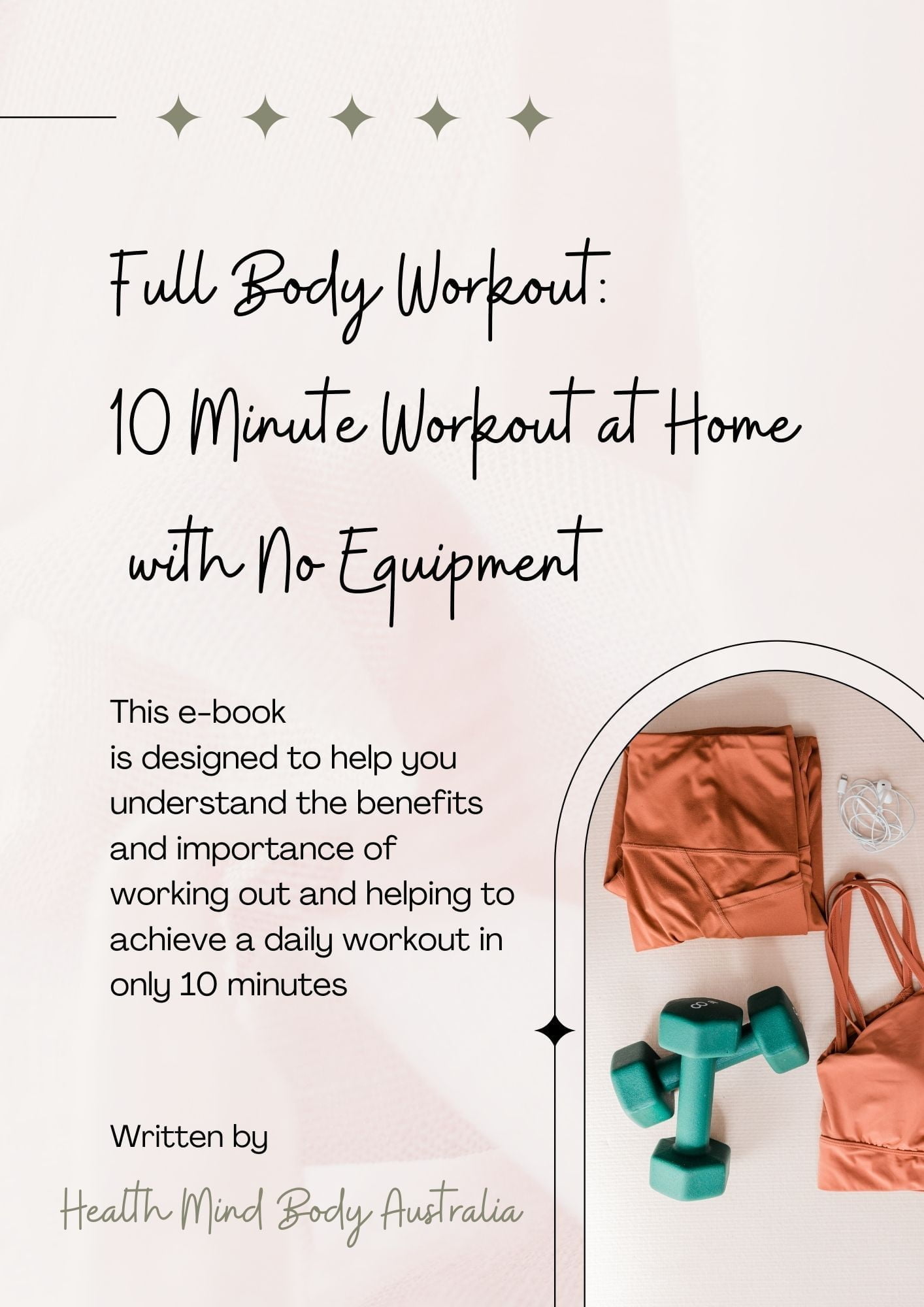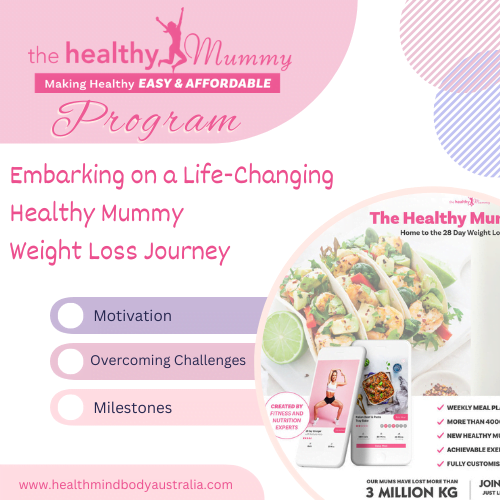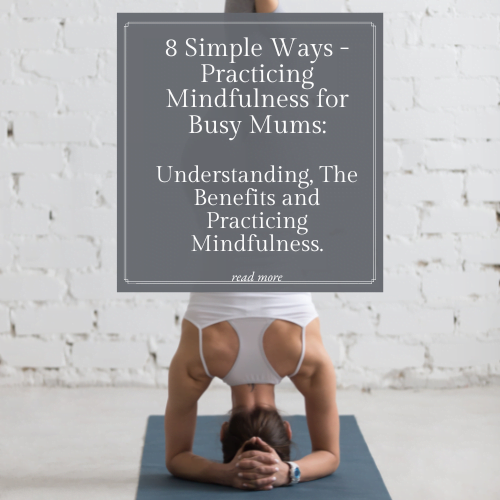Achieving Health Mind and Body Wellness: A Comprehensive Guide
In today’s fast-paced world, achieving a state of holistic well-being is a universal aspiration.
Health, mind, and body wellness encompass a multidimensional approach to living a fulfilling and balanced life.
This article will explore the significance of health mind body wellness, its impact, the benefits it offers, strategies to achieve health mind body wellness, and practical tips for incorporating health mind body wellness into your busy schedule.
By understanding and implementing these principles, you can cultivate a harmonious existence that promotes overall happiness and vitality.
Understanding Health Mind Body Wellness
Health mind body wellness refers to the integration of physical, mental, and emotional well-being.
Health mind body wellness is a holistic approach to well-being that recognises the inseparable connection between your physical, mental, and emotional states.
Achieving wellness involves nourishing your body with nutritious food, engaging in regular physical activity, nurturing your mental and emotional state, and fostering positive relationships.
Let’s explore each dimension in detail.
Physical Well-being
Physical well-being is the foundation of health mind body wellness.
It involves taking care of your body through proper nutrition, regular exercise, and adequate rest. Nourishing your body with nutrient-dense foods provides the essential vitamins, minerals, and energy needed for optimal functioning.
A balanced diet consisting of whole foods, fruits, vegetables, lean proteins, and healthy fats promotes physical vitality and supports various bodily systems.
Regular physical activity is another crucial aspect of physical well-being.
Engaging in exercises that elevate your heart rate, strengthen muscles, and improve flexibility promotes cardiovascular health, builds endurance, and enhances overall strength.
Exercise also stimulates the release of endorphins, which are natural mood boosters that contribute to a sense of well-being.
Sufficient rest and quality sleep are equally important for physical well-being.
Restorative sleep allows the body to repair, recharge, and rejuvenate, ensuring optimal functioning of bodily systems.

Mental Well-being
Mental well-being encompasses your cognitive abilities, emotional state, and psychological resilience. Nurturing your mental well-being involves practices that promote mental clarity, emotional stability, and stress reduction.
Here are some key elements:
Mindfulness
Mindfulness is the practice of being fully present and aware of the present moment without judgment.
It involves observing your thoughts, feelings, and sensations without getting caught up in them.
Regular mindfulness practice, such as meditation, cultivates mental clarity, reduces anxiety, and enhances emotional resilience.
Positive Thinking
Positive thinking involves cultivating an optimistic mindset and focusing on the positive aspects of life.
It promotes a healthier perspective, increases self-confidence, and enhances overall well-being.
Stress Management
Effective stress management is crucial for mental well-being.
Engaging in stress-reducing activities such as deep breathing exercises, journaling, engaging in hobbies, and seeking support from loved ones or professionals helps in managing stress levels and promoting emotional balance.
Emotional Well-Being
Emotional well-being involves recognising, understanding, and managing our emotions in a healthy and constructive manner.
It is about developing emotional intelligence, self-awareness, and fostering positive relationships.
Key components of emotional well-being include:
Self-Awareness
Developing self-awareness involves understanding your emotions, strengths, weaknesses, and triggers.
It allows you to recognise and regulate your emotions effectively.
Self-Compassion
Showing kindness, understanding, and self-compassion towards yourself is essential for emotional well-being.
It involves accepting imperfections, practicing self-care, and nurturing a positive self-image.
Positive Relationships
Cultivating healthy and supportive relationships is vital for emotional well-being.
Surrounding yourself with positive influences, fostering meaningful connections, and seeking social support contribute to a sense of belonging and emotional fulfillment.
In summary, health mind body wellness integrates physical, mental, and emotional well-being.
It involves nourishing your body with nutritious food, engaging in regular physical activity, nurturing your mental and emotional state through mindfulness practices and positive thinking, and fostering positive relationships.
The Impact of Health Mind Body Wellness
The impact of health mind body wellness extends to all aspects of our lives.
When the physical, mental, and emotional dimensions are in balance, you experience a multitude of positive effects.
Here are some key impacts of achieving health mind body wellness:
Increased Energy Levels
When you prioritise your health mind body wellness, you are more likely to experience increased energy levels.
Regular physical activity, balanced nutrition, and adequate rest contribute to improved stamina and vitality.
Engaging in activities that nourish your mind and emotions, such as mindfulness practices and positive thinking, also help in conserving and replenishing energy.
Improved Mood and Emotional Well-being
Wellness practices have a profound impact on your emotional state.
When your mind and body are in a state of well-being, you are more likely to experience positive emotions, reduced anxiety, and improved overall mood.
Engaging in activities such as meditation, deep breathing exercises, and practicing gratitude promote emotional balance, resilience, and a greater sense of contentment.
Enhanced Cognitive Function
Health mind body wellness has a direct influence on your cognitive abilities.
Regular physical exercise increases blood flow to the brain, promotes neuroplasticity, and enhances cognitive function, including memory, attention, and problem-solving skills.
Additionally, mindfulness practices have been shown to improve focus, concentration, and mental clarity.
Improved Stress Management
Stress is a common and often unavoidable part of life.
However, implementing health mind body wellness techniques can significantly improve our ability to manage and cope with stress.
Engaging in regular physical activity releases endorphins, which are natural stress relievers.
Mindfulness practices reduce stress by promoting relaxation, reducing rumination, and increasing your ability to respond to stressors with greater resilience and composure.
Heightened Overall Resilience
Wellness practices cultivate resilience, which is the ability to bounce back from challenges and setbacks.
By nourishing your physical, mental, and emotional well-being, you enhance your capacity to adapt, cope, and thrive in the face of adversity.
This resilience enables you to maintain a positive outlook, persevere through challenges, and maintain a sense of equilibrium and balance in your life.
Reduced Risk of Chronic Diseases and Longevity
Investing in health mind body wellness has long-term benefits for your physical health.
By engaging in regular exercise, maintaining a balanced diet, and managing stress, you can reduce the risk of chronic diseases such as heart disease, diabetes, obesity, and certain types of cancer.
Well-being practices also contribute to healthy aging, promoting longevity and a higher quality of life as you age.
Benefits of Health Mind Body Wellness
Here are some benefits of achieving health mind body wellness:
Healthy Weight Maintenance
Maintaining a healthy weight is crucial for overall health and well-being.
Engaging in regular exercise and following a balanced diet are key factors in achieving and sustaining a healthy weight.
Here are some ways in which these practices contribute to healthy weight maintenance:
Increased Calorie Expenditure
Regular exercise, such as cardiovascular activities, strength training, or high-intensity interval training (HIIT), increases calorie expenditure.
When you engage in physical activity, your body burns calories to provide energy for the workout.
This energy expenditure helps create a calorie deficit, which is essential for weight loss or weight maintenance.
Building Lean Muscle Mass
Incorporating strength training exercises into your fitness routine helps build lean muscle mass.
Muscles are metabolically active tissues that burn more calories at rest compared to fat tissue.
By increasing your muscle mass, you boost your resting metabolic rate (RMR), which means your body burns more calories even when you’re not exercising.
This can aid in weight management by helping you burn more calories throughout the day.
Improved Metabolic Function
Regular exercise and physical activity positively impact metabolic function.
Exercise increases insulin sensitivity, allowing your body to better regulate blood sugar levels.
It also improves lipid profile by increasing the levels of HDL (good) cholesterol and reducing LDL (bad) cholesterol and triglycerides.
These metabolic improvements contribute to a healthier weight and a reduced risk of metabolic disorders, such as type 2 diabetes.
Dietary Balance
Following a balanced diet is essential for healthy weight maintenance.
A balanced diet includes a variety of nutrient-dense foods from different food groups, including fruits, vegetables, whole grains, lean proteins, and healthy fats.
This provides your body with essential vitamins, minerals, and macronutrients while controlling calorie intake.
Portion Control and Calorie Awareness
Being mindful of portion sizes and calorie intake is important for weight management.
Understanding the calorie content of foods and practicing portion control can help you maintain a calorie balance.
It’s beneficial to be aware of the energy density of different foods and make choices that are lower in calories but higher in nutritional value.
Sustained Energy and Appetite Control
Regular exercise and a balanced diet contribute to sustained energy levels throughout the day.
Exercise can help regulate appetite by increasing fullness hormones and reducing hunger hormones, leading to better appetite control and reduced food cravings.
Proper nutrition, including a balance of macronutrients (carbohydrates, proteins, and fats), helps stabilise blood sugar levels and promotes longer-lasting feelings of fullness.
It’s important to note that healthy weight maintenance is not just about numbers on a scale.
It’s about achieving a weight that is optimal for your individual body composition, overall health, and lifestyle.
Consulting with a healthcare professional or registered dietitian can provide personalised guidance and support in maintaining a healthy weight.
Stronger Immune System
A healthy mind and body support a robust immune system.
Regular exercise and proper nutrition strengthen the immune system, making it more effective in fighting off infections and diseases.
Improved Cardiovascular Health
Engaging in cardiovascular exercises such as running, cycling, or swimming improves heart health by strengthening the heart muscle, reducing blood pressure, and enhancing circulation.
This, in turn, lowers the risk of heart disease and stroke.
Enhanced Sleep Quality
Health mind body wellness practices promote better sleep.
Regular physical activity helps regulate sleep patterns and improves sleep quality, leading to restorative and refreshing sleep.
A balanced diet and stress reduction techniques also contribute to improved sleep.
Increased Physical Strength and Flexibility
Regular exercise, especially strength training, improves muscle strength and enhances flexibility.
Stronger muscles support better posture, balance, and overall physical performance, while increased flexibility reduces the risk of injuries.
Mental Benefits
Mental benefits include:
Mental Clarity
Health mind body wellness practices like meditation and mindfulness promote mental clarity and focus.
They help calm the mind, reduce distractions, and enhance cognitive function, leading to improved decision-making and problem-solving skills.
Emotional Stability
Wellness practices contribute to emotional stability by providing tools to manage and regulate emotions effectively.
Meditation, mindfulness, and positive thinking cultivate resilience, reduce anxiety, and promote emotional balance.
Stress Reduction
Chronic stress can have detrimental effects on mental and physical well-being.
Health mind body wellness practices offer effective stress management techniques.
They help you cope with stress by promoting relaxation, reducing cortisol levels, and providing a sense of calm and balance.
Improved Focus
Engaging in wellness practices enhances concentration and focus.
By calming the mind and reducing mental clutter, you can direct their attention more effectively, leading to increased productivity and efficiency in daily tasks.
Enhanced Creativity
Health mind body wellness practices stimulate creativity.
Mindfulness and meditation techniques create a mental space for new ideas, insights, and inspiration to emerge.
By quieting the mind and reducing mental noise, you can tap into your creative potential.
Emotional Benefits
Emotion benefits include:
Greater Emotional Resilience
Health mind body wellness practices foster emotional resilience by promoting self-awareness and emotional regulation.
You develop the ability to navigate and adapt to challenging situations, bounce back from setbacks, and maintain emotional well-being in the face of adversity.
Improved Self-Esteem
Nurturing self-awareness and practicing self-compassion are integral to health mind body wellness.
These practices cultivate a positive self-image, boost self-esteem, and promote a sense of self-worth and self-acceptance.
Sense of Fulfillment
Cultivating healthy relationships and nurturing emotional well-being leads to a sense of fulfillment and satisfaction in life.
Meaningful connections, social support, and positive interactions contribute to a greater sense of belonging and happiness.
Incorporating health mind body wellness practices into your life offers numerous physical, mental, and emotional benefits.
By taking care of your body, nurturing your minds, and fostering emotional well-being, you can experience improved overall health, increased resilience, and a greater sense of fulfillment and well-being.
Strategies to Achieve Health Mind Body Wellness
To achieve health mind body wellness, it’s important to adopt strategies that encompass various aspects of your well-being.
Here are some key strategies to implement into your lifestyle:
Nutrition
Balanced Diet
Opt for a balanced diet that includes a variety of whole foods, such as fruits, vegetables, whole grains, lean proteins, and healthy fats.
These provide essential nutrients for optimal physical and mental functioning.
Hydration
Stay hydrated by drinking an adequate amount of water throughout the day.
Water is essential for maintaining bodily functions, regulating body temperature, and promoting overall health.
Reduce Processed Foods
Minimise the intake of processed foods that are high in added sugars, unhealthy fats, and artificial additives.
These foods offer little nutritional value and can negatively impact your overall well-being.
Mindful Eating
Practice mindful eating by paying attention to your body’s hunger and fullness cues.
Eat slowly, savour your meals, and listen to your body’s signals to prevent overeating and promote a healthy relationship with food.

Exercise
Regular Physical Activity
Engage in regular exercise that includes a combination of cardiovascular exercises, strength training, and flexibility exercises.
Aim for at least 150 minutes of moderate-intensity aerobic activity or 75 minutes of vigorous-intensity activity per week, along with strength training exercises twice a week.
Find Activities You Enjoy
Choose physical activities that you genuinely enjoy.
This increases the likelihood of sticking to your exercise routine and makes it a more enjoyable experience overall.
Incorporate Movement Throughout the Day
Stay active throughout the day by incorporating movement into your daily routine.
Take breaks from sitting, go for short walks, use stairs instead of elevators, or try active commuting options like riding a bike or walking.
Mindfulness and Meditation
Mindfulness Practices
Dedicate time each day to engage in mindfulness practices such as meditation, deep breathing exercises, or yoga.
These practices help calm the mind, reduce stress, and improve overall mental well-being.
Mindful Awareness
Cultivate mindful awareness in your daily activities.
Focus on the present moment, fully engaging your senses, and being aware of your thoughts and emotions without judgment.
This brings a greater sense of clarity and connection to the present.
Gratitude Practice
Develop a gratitude practice by regularly expressing gratitude for the positive aspects of your life.
This practice shifts your focus towards positivity, fosters a sense of contentment, and enhances overall well-being.
Self-Care
Prioritise Rest and Sleep
Ensure you get enough quality sleep each night to support physical and mental rejuvenation.
Create a relaxing bedtime routine, optimise your sleep environment, and aim for 7-9 hours of sleep per night.
Engage in Hobbies and Activities
Set aside time for activities that bring you joy and help you unwind.
Engaging in hobbies, pursuing creative outlets, or spending time in nature can be rejuvenating and promote overall well-being.
Seek Support
Recognise the importance of seeking support when needed.
Maintain open and honest communication with loved ones, and consider professional help when facing challenges that impact your mental and emotional well-being.
By incorporating these strategies into your daily life, you can gradually achieve and maintain health mind body wellness.
Remember that it’s a journey, and progress comes with consistency and patience.
Implementing Wellness into a Busy Schedule
Incorporating health mind body wellness into a busy schedule may seem challenging, but with the right strategies and mindset, it is achievable.
Here are some practical tips to help you integrate wellness practices into your busy life:
Identify Your Priorities
Determine the most important aspects of wellness that align with your goals and values.
It could be exercise, mindfulness, nutrition, or self-care.
Focus on these key areas and make them a priority in your schedule.
Set Realistic Expectations
Understand that you may not be able to do everything at once.
Start with small steps and gradually build up your wellness routine over time.
Be kind to yourself and celebrate your progress along the way.
Schedule
Block Out Dedicated Time
Treat your wellness activities as non-negotiable appointments.
Schedule specific time slots in your calendar for exercise, mindfulness practices, and self-care activities.
Consider them essential commitments to your overall well-being.
Find Convenient Time Slots
Identify pockets of time in your day where you can fit in wellness practices.
It could be early mornings, lunch breaks, or evenings.
Choose a time that works best for you and stick to it consistently.
Time Management
Break Tasks into Chunks
Break down your tasks into smaller, manageable chunks.
This allows you to make progress even when you have limited time.
Set specific goals for each chunk and focus on completing them one at a time.
Eliminate Time-Wasting Activities
Identify activities that consume your time without providing significant value.
Minimise or eliminate these distractions to free up time for wellness activities.
This could include reducing screen time, limiting social media usage, or delegating non-essential tasks.
Multitasking
Combine Activities
Look for opportunities to combine wellness activities with other tasks.
For example, listen to audiobooks or educational podcasts while exercising, meditate during your lunch break, or practice deep breathing exercises while commuting.
This allows you to make the most of your time and maximise productivity.
Mindful Engagement
When multitasking, ensure that you remain present and fully engaged in each activity.
Practice mindfulness by focusing on one task at a time, giving it your undivided attention, and immersing yourself in the experience.
Accountability
Find an Accountability Partner
Partner with a friend, family member, or colleague who shares similar wellness goals.
Hold each other accountable, set targets together, and regularly check in on each other’s progress.
This support system can provide motivation and encouragement.
Join Wellness Communities
Seek out online or local wellness communities where you can connect with like-minded individuals. Participate in group activities, share experiences, and gain inspiration from others on the wellness journey.
These communities can offer support, guidance, and a sense of belonging.
Remember, it’s essential to be flexible and adaptable.
Life can be unpredictable, and schedules may change.
Be willing to adjust and find alternative ways to incorporate wellness practices into your routine. Consistency is key, but it’s also important to listen to your body and give yourself grace when needed.
Final Thoughts – Achieving Health Mind and Body Wellness
Health mind body wellness is a transformative approach to living a fulfilling and balanced life.
By nurturing your physical, mental, and emotional well-being, you unlock your full potential and experience improved overall health, increased resilience, and a deeper sense of fulfillment.
Implementing wellness practices into your daily routines, even in the midst of a busy schedule, is possible with mindful planning, prioritisation, and commitment.
It is crucial to recognise the significance of incorporating wellness practices into your life.
By understanding the interconnectedness of physical, mental, and emotional well-being, you can create a harmonious balance that leads to optimal health and overall satisfaction.
Through the implementation of strategies such as nutrition, exercise, mindfulness, and self-care, you can achieve remarkable benefits.
Regular physical activity and a balanced diet contribute to maintaining a healthy weight, strengthening the immune system, and improving cardiovascular health.
Mindfulness practices foster mental clarity, emotional stability, and stress reduction, while self-care activities nurture our sense of fulfillment and enhance overall well-being.
To successfully integrate wellness into your busy schedules, it is crucial to prioritise the aspects that matter most to you.
By scheduling dedicated time for wellness activities, breaking tasks into manageable chunks, and finding opportunities for multitasking, you can optimise your time and make progress towards your wellness goals.
Accountability plays a vital role in staying motivated and committed.
Whether it is finding an accountability partner or joining wellness communities, having a support system can provide the encouragement and inspiration needed to stay on track.
In conclusion, achieving health mind body wellness requires conscious effort, but the rewards are invaluable.
By investing in yourself and making wellness a priority, you can experience increased energy levels, improved mood, enhanced cognitive function, better stress management, and a reduced risk of chronic diseases.
Embracing a holistic approach to wellness not only benefits you individually but also positively impacts your relationships, work performance, and overall quality of life.
Embark on this journey of wellness one step at a time, knowing that your commitment to self-care will lead you towards a healthier, happier, and more fulfilling life.
Join me on my Socials! I would love to hear from you.
Amy xx
This page contains affiliate links. If you choose to make a purchase after clicking a link, I may receive a commission at no additional cost to you.











